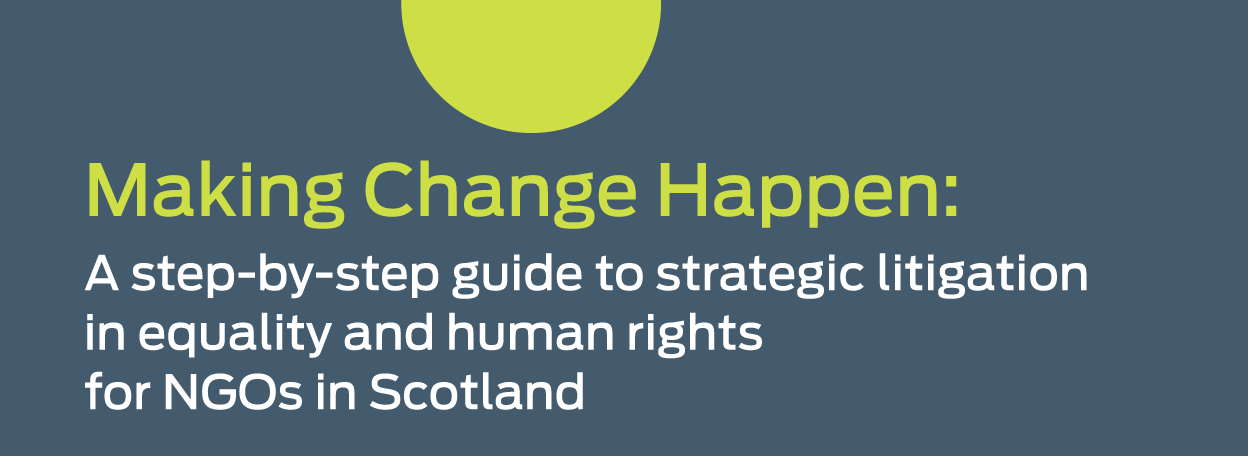Step three: Get advice, get advice, get advice!
It is important to get legal advice from very early on in your decision-making around strategic litigation.
You could do so via a strategic litigation network, through a private solicitor, a law clinic or centre, or with an advocate through advice agency referral to the Faculty of Advocates Free Legal Services Unit – see Resources for more details.
You can arrange a meeting and discuss with them the details of your strategic issue and the pros and cons of pursuing litigation. When seeking legal advice, it is helpful to provide in advance to the solicitor or advocate information about:
The initial advice you receive could simply be oral advice in your meeting, following by a brief confirmatory letter.
If the solicitor or advocate believes there to be good prospects in pursuing strategic litigation, and is willing to provide further advice, you should clarify what services she will offer your organisation and whether there is any charge for the advice.
You might consider, for example, asking for a written legal opinion to help bring clarity to your issue and to prepare for litigation.
You can also discuss the strategic issue with the Equality and Human Rights Commission (EHRC).
You could do so via a strategic litigation network, through a private solicitor, a law clinic or centre, or with an advocate through advice agency referral to the Faculty of Advocates Free Legal Services Unit – see Resources for more details.
You can arrange a meeting and discuss with them the details of your strategic issue and the pros and cons of pursuing litigation. When seeking legal advice, it is helpful to provide in advance to the solicitor or advocate information about:
- your organisation
- the strategic issue you wish to pursue
- the factors that might affect your ability to approve, or fund, the pursuit of strategic litigation.
The initial advice you receive could simply be oral advice in your meeting, following by a brief confirmatory letter.
If the solicitor or advocate believes there to be good prospects in pursuing strategic litigation, and is willing to provide further advice, you should clarify what services she will offer your organisation and whether there is any charge for the advice.
You might consider, for example, asking for a written legal opinion to help bring clarity to your issue and to prepare for litigation.
You can also discuss the strategic issue with the Equality and Human Rights Commission (EHRC).

